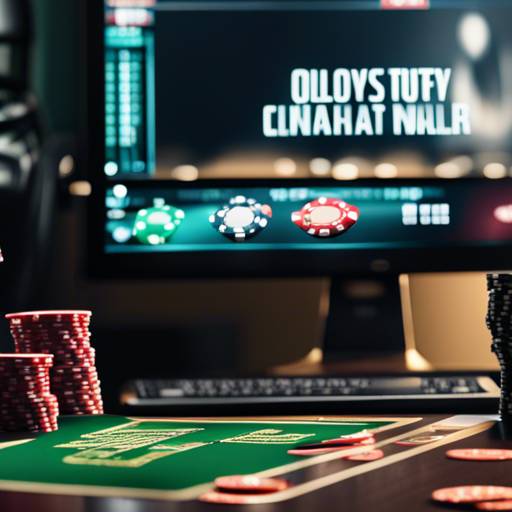Poker Dealing Essentials: Mastering Texas Hold’em is a comprehensive guide designed to equip aspiring poker dealers with the necessary skills and knowledge to proficiently manage Texas Hold’em games. This guide covers the fundamental aspects of dealing poker, including the mechanics of shuffling, cutting, and dealing cards, as well as managing bets and pots. It also delves into the intricacies of game flow, player interactions, and the enforcement of rules and etiquette. By mastering the content within this guide, individuals will be prepared to facilitate Texas Hold’em games with confidence, ensuring a fair and enjoyable experience for all participants.
The Step-by-Step Guide on How to Deal Texas Hold’em Poker

Title: Poker Dealing Essentials: Mastering Texas Hold’em
If you’ve ever been captivated by the allure of poker, you know that Texas Hold’em stands as the crown jewel of the card game world. It’s not just about playing; dealing in Texas Hold’em is an art form that, when mastered, can elevate the game to new heights. Whether you’re aiming to be a professional dealer or simply want to impress your friends on game night, learning to deal Texas Hold’em is a skill worth acquiring.
First and foremost, understanding the basic structure of the game is crucial. Texas Hold’em is played with a standard 52-card deck, and each player is dealt two private cards (known as ‘hole cards’) that belong to them alone. Five community cards are dealt face-up on the ‘board’. All players in the game use these shared community cards in conjunction with their own hole cards to each make their best possible five-card poker hand. The player with the best hand, or the last player left after all others have folded, wins the pot.
Now, let’s dive into the dealing process. Begin by ensuring the deck is shuffled thoroughly, which not only randomizes the cards but also demonstrates fairness and integrity in the game. After shuffling, offer the deck to a player for a ‘cut’, which means they take a portion of the deck and place it on the table; you then place the remaining deck on top. This step is a traditional part of poker that adds an extra layer of randomness to the shuffle.
Dealing the cards is next, and it’s important to do so with precision and care. Start with the player to your immediate left and deal clockwise, giving each player one card at a time until everyone has two cards. These cards should be dealt face down, and it’s essential to keep them private, only visible to the respective player.
Once the hole cards are dealt, betting begins with the player sitting to the left of the big blind, continuing clockwise around the table. As the dealer, you must manage the action, ensuring that each player has their turn and that bets are placed correctly. This is where your attentiveness and command over the game come into play, as you guide the flow of the game with confidence and clarity.
After the first round of betting, it’s time to deal the ‘flop’, which is the first three community cards. Before revealing the flop, ‘burn’ one card by placing it face down on the table; this is a traditional safeguard against any potential unfair advantage. Then, lay the next three cards face up in the center of the table. This is followed by another round of betting.
Next comes the ‘turn’, where you burn another card and then deal one community card face up next to the flop. Another round of betting ensues. Finally, the ‘river’ is dealt in the same manner, with one last community card placed on the board, followed by the final round of betting.
Throughout the game, it’s your responsibility to maintain a smooth, fair, and enjoyable experience for all players. Keep the action moving, manage the pot accurately, and ensure that all bets and raises are made in proper turn. Remember, a good dealer is not just a participant but the facilitator of the game, creating an atmosphere of excitement and professionalism.
In conclusion, dealing Texas Hold’em is not just about distributing cards; it’s about creating an engaging and fair game environment. By mastering the steps of dealing and managing the flow of the game, you become more than just a dealer – you become an integral part of the Texas Hold’em experience. So, shuffle up, deal with confidence, and watch as your table comes alive with the thrill of poker.
Essential Techniques for Dealing Texas Hold’em Like a Pro

Poker Dealing Essentials: Mastering Texas Hold’em
If you’ve ever watched a game of Texas Hold’em, you know that the dealer plays a crucial role in maintaining the pace and integrity of the game. Aspiring to deal like a pro not only enhances the experience for players but also elevates your own understanding and appreciation of this beloved card game. Whether you’re looking to deal in a casual home game or considering a career in the casino industry, mastering the essential techniques of dealing Texas Hold’em is a skill worth acquiring.
First and foremost, a professional dealer must have a thorough understanding of the rules of Texas Hold’em. This knowledge ensures that the game runs smoothly and that any disputes can be resolved quickly and fairly. But knowing the rules is just the beginning; the physical act of dealing requires precision and finesse. The way you shuffle, handle, and distribute cards can have a significant impact on the flow of the game.
Shuffling is an art in itself, and a good dealer shuffles the deck with a method that is both efficient and secure. The standard casino shuffle consists of a riffle, a strip, and another riffle, followed by a cut. This method ensures that the cards are thoroughly mixed, reducing the chances of predictable patterns and maintaining the integrity of the game. It’s important to shuffle in a way that is not only effective but also instills confidence in the players that the game is fair.
Once the cards are shuffled, dealing them with accuracy and speed is the next step. A smooth, even distribution of cards is key. Each player should receive their cards in a swift, fluid motion, with the cards staying low to the table to prevent any from being exposed. This not only keeps the game moving at a brisk pace but also protects the privacy of each player’s hand.
Another essential technique is managing the pot and the bets. As a dealer, you must be able to quickly and accurately calculate pot sizes, side pots, and ensure that all bets and raises are correct. This requires a sharp eye and a good head for numbers. Players rely on the dealer to keep track of the action, and any mistakes can disrupt the flow of the game and potentially cause confusion or conflict.
Moreover, a professional dealer must be adept at reading the table. This means paying attention to the players, recognizing whose turn it is, and prompting action when necessary. A good dealer is always aware of the game’s progress and maintains a rhythm that keeps the game moving without rushing the players. This balance is crucial for an enjoyable game where players feel neither rushed nor bored.
Finally, a professional demeanor is essential. A good dealer is not just efficient but also courteous and composed, even when faced with challenging situations. Maintaining a friendly yet neutral presence at the table helps create a comfortable and enjoyable atmosphere for all players.
In conclusion, dealing Texas Hold’em like a pro involves much more than just passing out cards. It requires a deep understanding of the game, a deft touch with the deck, quick mathematical skills, keen observation, and a professional demeanor. By mastering these essential techniques, you can ensure that every game you deal is conducted with the skill and grace of a seasoned professional, enhancing the experience for everyone involved and perhaps even inspiring others to elevate their own approach to this classic game.
Mastering the Art of Texas Hold’em Poker Dealing

Poker Dealing Essentials: Mastering Texas Hold’em
The art of dealing in Texas Hold’em is not just about shuffling cards and distributing them to the players. It’s a craft that, when mastered, can elevate the game from a casual pastime to a seamless and engaging experience. As a dealer, you are the conductor of the poker table, setting the tempo and ensuring the harmony of play. To become adept at dealing Texas Hold’em, one must embrace the role with both enthusiasm and precision, understanding that the dealer’s proficiency directly impacts the quality of the game.
First and foremost, a dealer must possess a thorough understanding of the rules of Texas Hold’em. This knowledge is the foundation upon which all other skills are built. It allows the dealer to oversee the game with confidence, making rulings and decisions with authority. A dealer who is well-versed in the rules becomes an invaluable asset to the game, ensuring that play runs smoothly and disputes are resolved fairly.
The physical act of dealing requires a delicate balance of speed and accuracy. A dealer must be able to shuffle the deck with efficiency, avoiding any unnecessary delays that can disrupt the flow of the game. However, speed should never come at the expense of accuracy. Misdeals or errors in card distribution can cause confusion and frustration among players. Therefore, a dealer must practice the mechanics of shuffling, cutting, and dealing until they can perform these tasks with both swiftness and precision.
Another essential skill for a Texas Hold’em dealer is the ability to manage the pot and betting rounds with ease. This involves not only keeping track of the current bet amounts but also ensuring that all bets are properly collected and distributed. A good dealer maintains a clear and organized chip layout, which helps prevent errors in pot calculation and allows for a transparent view of the stakes at hand. This clarity is crucial for maintaining the trust and confidence of the players.
Communication is also a key component of effective dealing. A dealer must be able to articulate the action clearly, announcing raises, folds, and all-ins with a voice that commands attention without being overbearing. This communication extends to non-verbal cues as well, as a dealer must be attuned to the subtle signals from players indicating their intentions. By maintaining open lines of communication, a dealer ensures that each player is aware of the game’s progress and can make informed decisions.
Lastly, a dealer must exhibit a high level of professionalism and integrity. The impartiality of the dealer is sacrosanct, as it upholds the fairness and integrity of the game. A dealer must be vigilant against any form of cheating or collusion, acting swiftly to address any such issues. Additionally, a dealer should foster a welcoming and enjoyable atmosphere, treating all players with respect and courtesy regardless of their skill level or experience.
In conclusion, mastering the art of Texas Hold’em poker dealing is a multifaceted endeavor that requires a blend of technical skill, rule knowledge, and interpersonal finesse. By honing these abilities, a dealer can provide a seamless and enjoyable poker experience, ensuring that the game is played fairly and efficiently. Whether you’re an aspiring dealer or a seasoned professional, remember that your role is pivotal to the success of the game. Embrace the challenge, and you will not only enhance the enjoyment of the players but also earn their respect and appreciation as a master of the poker dealing craft.
The Dealer’s Playbook: How to Deal Texas Hold’em Poker Effectively

Poker Dealing Essentials: Mastering Texas Hold’em
In the world of poker, the role of the dealer is as crucial as the cards themselves. A proficient dealer ensures a seamless and enjoyable game, and nowhere is this more evident than in the popular variant of Texas Hold’em. To deal Texas Hold’em effectively is to master a craft that enhances the experience for every player at the table. It’s not just about shuffling and distributing cards; it’s about creating an atmosphere of fairness, excitement, and professionalism.
First and foremost, a dealer must have a comprehensive understanding of the rules of Texas Hold’em. This knowledge is the foundation upon which their skills are built. It’s not enough to simply know the order of play; a dealer must be able to explain the rules to players of all levels, from novices to seasoned pros, with clarity and confidence. This ensures that the game runs smoothly and disputes are resolved quickly.
The mechanics of dealing are also vital. A dealer’s hands are their tools, and like any craftsman, their movements must be precise and efficient. The shuffle must be thorough, ensuring a random distribution of cards, and the deal must be clean, with each card gliding to its intended recipient without revealing any information. This level of dexterity comes with practice, and a dealer dedicated to their craft will practice relentlessly to perfect their technique.
Beyond the technical aspects, a dealer must also be an adept communicator and observer. They must manage the flow of the game, keeping it moving at a comfortable pace. This involves not only dealing cards but also controlling the betting rounds, announcing raises, and keeping track of the pot size. A dealer must do all this while also being attentive to the players, recognizing their intentions, and ensuring that each player’s actions are clear to the entire table.
The psychological aspect of dealing cannot be overstated. A good dealer is like a conductor, subtly guiding the symphony of the game. They must be able to read the room, understanding when to inject a bit of humor to lighten the mood or when to assert authority to maintain order. The best dealers are those who can make players feel at ease, even in the most high-stakes situations.
Moreover, integrity is the cornerstone of a dealer’s reputation. A dealer must be beyond reproach, dealing each hand with an impartiality that is palpable to those seated at the table. This trust is what allows players to focus on their strategies rather than worrying about the fairness of the game. A dealer who upholds the highest standards of honesty becomes an invaluable asset to any poker room.
In conclusion, dealing Texas Hold’em effectively is an art form that requires a blend of technical skill, deep knowledge, keen observation, and unwavering integrity. Aspiring dealers should approach their craft with the seriousness it deserves, recognizing that they are not merely participants in the game but stewards of its integrity. By mastering these essentials, dealers can elevate the game of Texas Hold’em, creating an environment where strategy and skill flourish, and where the true spirit of poker is alive and well. Remember, a great dealer doesn’t just deal cards; they deal memories, and with each hand, they have the opportunity to make those memories unforgettable.Conclusion:
Mastering the essentials of poker dealing, particularly in Texas Hold’em, is crucial for ensuring smooth, fair, and enjoyable gameplay. A proficient dealer must have a comprehensive understanding of the game rules, hand rankings, and betting structures. They must also be skilled in shuffling, distributing cards, managing the pot, and enforcing game etiquette. Mastery of these dealing essentials not only enhances the experience for players but also upholds the integrity of the game.
















+ There are no comments
Add yours